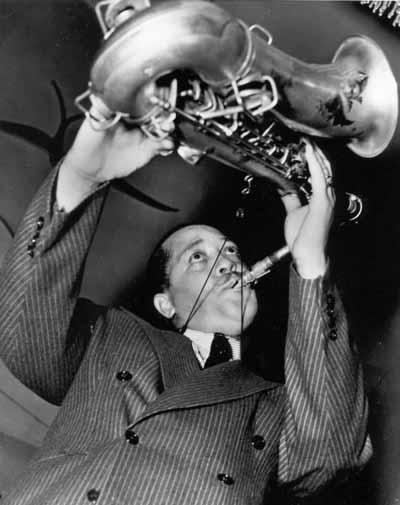Behold the hipster, the stylishly disaffected breed of twentysomethings whose fog of twee whimsy envelopes Williamsburg and the East Village. Most who encounter the hipster in its natural habitat respond in one of two ways: derision or ridicule.
But science does not cast judgment. Its goal is to explore and explain dispassionately, whether the object of study be the noble eagle or the lowly nematode. So what does science have to tell us about this fascinatingly misunderstood breed, the indigenous North American hipster?
Surprisingly much.
In a paper in an upcoming issue of the Journal of Consumer Research entitled "Demythologizing Consumption Practices: How Consumers Protect Their Field-Dependent Identity Investments from Devaluing Marketplace Myths," [LINK] authors Zeynep Arsel and Craig J. Thompson delve deep into the phenomenon of hipsterism, and in particular its most abiding mystery: if everyone hates hipsters, why would anyone want to be one?
The long and short of it is that they don't.
In general, psychologists who study consumers understand that people are largely motivated to spend money not just on things that they materially need, but that bolster their sense of identity. They purchase not just goods and services, but mythologies. Imagining themselves as rugged, rebellious patriots, they buy a Harley-Davidson. Imagining themselves as respected and well-heeled, they buy a Lexus.
Hipsters, though, follow a different paradigm. Their problem is that their purchases tend to place them within a category whose mythology they despise. That's right: Nobody likes hipsters, not even hipsters.
As Arsel and Thompson put it, the beats of the '50s and hippies of the '60s and '70s, both of which had an admirable authenticity about them even if you didn't care for the particulars, eventually gave rise to "the millennial hipster," which "came to be represented as an uberconsumer of trends and as a new, and rather gullible, target market that consumes cool rather than creating it." As examples of the dorkification they cite online parodies of the iconic Mac v. PC ads and this viral YouTube video.
The upshot being that any people who legitimately enjoy all the trappings on hipsterhood -- the authors mention Pabst Blue Ribbon, Puma, and the trucker hat -- must psychologically distance themselves from the demographic group of which they are so clearly a part. And so their subconscious brains have to work double time so that they can convince themselves that the things they buy do not reflect on their true character.
Arsel and Thompson interviewed hipsters and asked them how they dealt with the problem of being identified as such. The answer, they found, was to "demythologize" the hipster experience, that is, to psychologically reclassify their own behavior as being separate from the aggregate activity that the rest of the world lumps together as "hipster." They interviewed one consumer, identified as Scarlet, who told them:
I'm not gonna lie, I shop at Urban [Outfitters] sometimes, only when it's on sale of course... I like doing a lot of the things that are the hipster thing to do, but I do them because I like to do them, not because they're the cool thing to do. And because I am immersed in the social scene where there are a lot of hipsters, people mistake me for being one of them."
The deeper irony is that those who try to assert their independence from the commodification of identity wind up tapping into another marketplace myth, what the authors call "the myth of consumer sovereignty." This is the idea that by assiduously selecting from all the identity markers available for purchase, a person can assemble one that authentically reflects their true self independent of the marketplace. Some of the hipsters that Arsel and Thompson talked to are well aware of the futility of this project. Said one, identified as "Tom":
I don't necessarily know every single weird obscure band. I don't necessarily want to. But I mean, yeah, who do I hang out with? I hang out with like a bunch of tattooed indie dorks. So, yeah, I guess I am but I wouldn't self-identify, I think. I'd listen to stuff that's outside the mainstream or it's like I dress weird compared to the majority of the population. I just try not to think about it too much. The minute you start identifying with a subculture... you kind of lose individuality, surrender part of your identity, and we don't wanna do that.
This, then, is the essence of being a hipster. Pretending you aren't one.
UPDATE: For more PT-inflected insight into hipsterology, check out news editor Andrea Bartz's side project, Stuff Hipsters Hate, a blog that is now also out in book form.
UPDATE 2: Some commenters have complained that the demographic group in question has not been defined with sufficient rigor. The following video should help.
UPDATE 3: Some readers felt that the above update was disrespectful. My apologies. Those seeking a more serious exposition of the hipster culture-space might wish to examine Hipster Runoff, an examination of alt-dom by a thoughtful and perspicacious insider.

